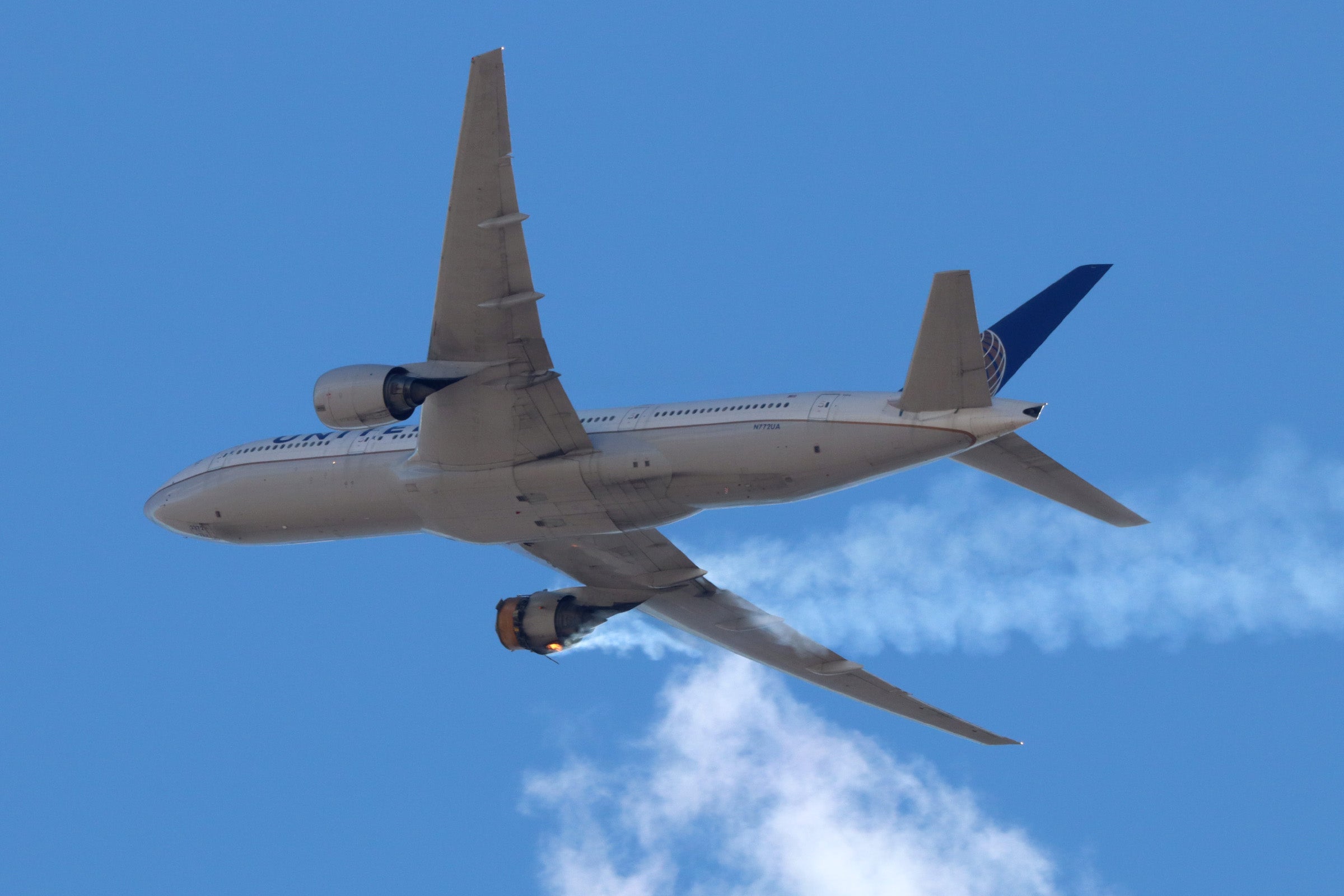FAA issues airworthiness directive for certain Pratt & Whitney engines following United incident
Editor's Note
The Federal Aviation Administration has issued an Airworthiness Directive (AD) that requires all U.S. aircraft with certain Pratt & Whitney PW4000 engines to undergo further inspections. Tuesday night's AD follows Boeing's recommendation to all airlines to temporarily suspend Boeing 777 flights that use the same engine as involved in Saturday's United Airlines flight 328 incident when the aircraft's Number 2 engine failed in flight.
"The FAA is taking this action as the result of a fan-blade failure that occurred Saturday on a Boeing 777-200 that had just departed from Denver International Airport," the FAA said in its AD. "Although the aircraft landed safely, the failure resulted in damage to the engine, an in-flight engine fire, and damage to the airplane.
"After reviewing the available data and considering other safety factors, the FAA determined that operators must conduct a thermal acoustic image (TAI) inspection of the large titanium fan blades located at the front of each engine. TAI technology can detect cracks on the interior surfaces of the hollow fan blades, or in areas that cannot be seen during a visual inspection."
The FAA said it would review the results on a rolling basis.
United has grounded all 24 of its Boeing 777 aircraft that were currently in service and powered by Pratt & Whitney 4000 series engines. United is the only U.S. carrier that has the affected aircraft in its fleet.
Japan's aviation regulator ordered Japan Airlines and All Nippon Airways to ground their respective aircraft. Japan Airlines had 19 777s with Pratt & Whitney engines in service, whereas ANA had 13. Elsewhere in Asia, Korean Air has grounded six of its 777s that use the affected engines and were in service.
On Monday afternoon local time, U.K. Transport Secretary Grant Shapps announced that the Civil Aviation Authority (CAA) has temporarily banned the aircraft from entering U.K. airspace.
Regarding the situation with Saturday's flight United 328 and Sunday's subsequent grounding of aircraft with similar engine types, the airline told TPG:

Starting immediately and out of an abundance of caution, we are voluntarily and temporarily removing 24 Boeing 777 aircraft powered by Pratt & Whitney 4000 series engines from our schedule. Since yesterday, we've been in touch with regulators at the NTSB and FAA and will continue to work closely with them to determine any additional steps that are needed to ensure these aircraft meet our rigorous safety standards and can return to service. As we swap out aircraft, we expect only a small number of customers to be inconvenienced.
Safety remains our highest priority - for our employees and our customers. That's why our pilots and flight attendants take part in extensive training to prepare and manage incidents like United flight 328. And we remain proud of their professionalism and steadfast dedication to safety in our day to day operations and when emergencies like this occur.
Engine maker Pratt & Whitney said that it allocated a team to work with investigators regarding Saturday's United Airlines incident.
Initial National Transportation Safety Board (NTSB) findings show that the damage of UA328 occurred in the right engine, where two fan blades were fractured and other surrounding blades were also impacted. There was minimal damage to the body of the airplane.
It's possible that this will result in some aircraft substitutions or schedule changes for United customers previously scheduled on these aircraft.
The standard-range version of the airline's PW4000-powered 777-200 is typically used for flights between Hawaii and select mainland hubs, including Denver (DEN), Los Angeles (LAX) and San Francisco (SFO), in addition to flights between Honolulu (HNL) and Guam (GUM).
A number of 777-200ERs, most often used for intercontinental flights, may be impacted as well. In the case of international 777 flights, passengers will likely see little impact, as United should be able to substitute otherwise-identical versions of these internationally configured planes, powered by General Electric GE90 engines, instead.
Here's how to research the aircraft you are currently scheduled to fly.
Additional reporting by Emily McNutt.
TPG featured card
at Capital One's secure site
Terms & restrictions apply. See rates & fees.
| 5X miles | Earn 5X miles on hotels, vacation rentals and rental cars booked through Capital One Travel |
| 2X miles | Earn unlimited 2X miles on every purchase, every day |
Pros
- Stellar welcome offer of 75,000 miles after spending $4,000 on purchases in the first three months from account opening. Plus, a $250 Capital One Travel credit to use in your first cardholder year upon account opening.
- You'll earn 2 miles per dollar on every purchase, which means you won't have to worry about memorizing bonus categories
- Rewards are versatile and can be redeemed for a statement credit or transferred to Capital One’s transfer partners
Cons
- Highest bonus-earning categories only on travel booked via Capital One Travel
- LIMITED-TIME OFFER: Enjoy $250 to use on Capital One Travel in your first cardholder year, plus earn 75,000 bonus miles once you spend $4,000 on purchases within the first 3 months from account opening - that’s equal to $1,000 in travel
- Earn unlimited 2X miles on every purchase, every day
- Earn 5X miles on hotels, vacation rentals and rental cars booked through Capital One Travel
- Miles won't expire for the life of the account and there's no limit to how many you can earn
- Receive up to a $120 credit for Global Entry or TSA PreCheck®
- Use your miles to get reimbursed for any travel purchase—or redeem by booking a trip through Capital One Travel
- Enjoy a $50 experience credit and other premium benefits with every hotel and vacation rental booked from the Lifestyle Collection
- Transfer your miles to your choice of 15+ travel loyalty programs
- Top rated mobile app


